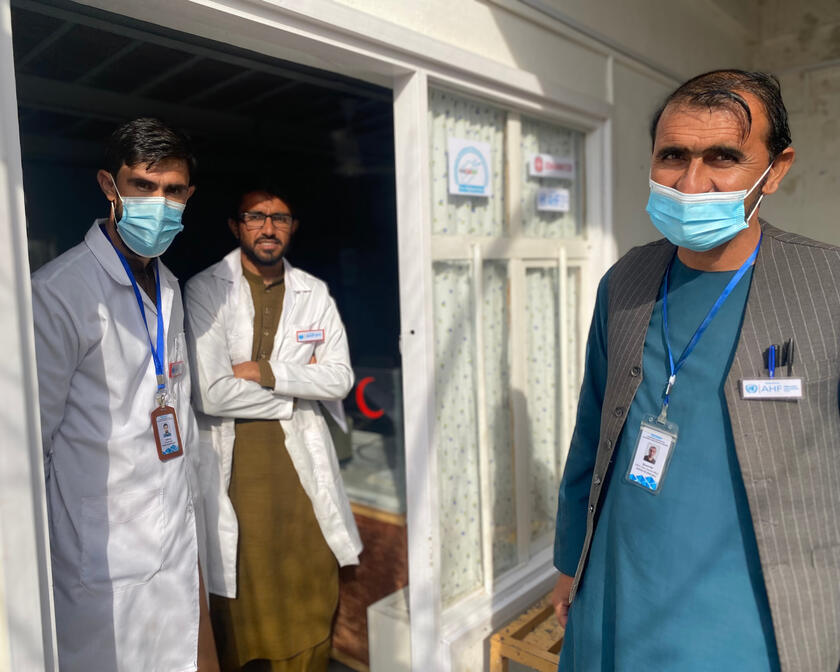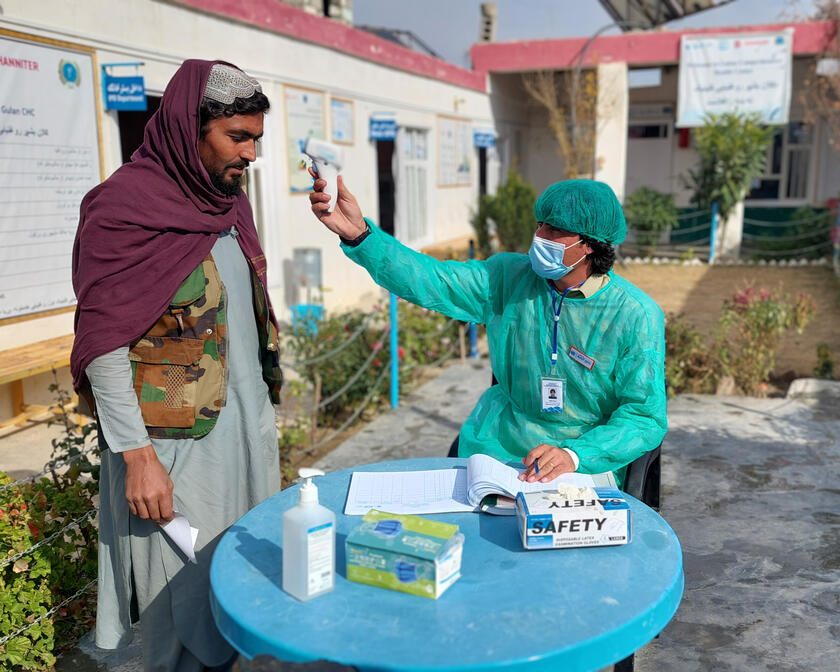Basic health care and psychosocial services for IDPs, returnees and the vulnerable

Project area:
Kabul and Khost districts
Period:
01.05.2021 - 30.04.2024
Partners:
Organisation of Human Welfare (OHW) and Humanitarian Assistance & Development Association for Afghanistan (HADAAF).
Funding by:
German Federal Foreign Office
Target group:
IDPs and returnees live in precarious conditions, most of them living in tents for years, others in mud houses without limited basic amenities, with limited and/or no access to health services, poor hygiene and sanitation, less access to drinking water and a constant threat of displacement. Beneficiaries are primarily selected from the vulnerable population of IDPs/returnees and host communities, including older people, people with disabilities, and vulnerable women and girls who have special needs and require humanitarian assistance.

What it's about:
As part of the COVID outbreak, Johanniter will provide integrated primary health care including COVID-19 services, psychosocial care and psychosocial support to new and old IDPs in 21 informal settlements and two IDP camps in Kabul through four primary health centres and three mobile clinics. The range of services includes maternal and child care, immunisation, laboratory services, disease control, infection prevention, COVID screening, contact tracing and referral, family planning/reproductive health, hygiene education, mental health and psychosocial support, identification and case management of gender-based violence cases, and community sensitisation on gender-based violence prevention.
Examples of activities:
Child health and immunisation and integrated management of newborns and childhood diseases.
Capacity building of staff in obstetric and newborn care.
Training of health workers on infection control and prevention
Communicable disease control
Provision of health services and essential medicines in the 7 health facilities
Health and hygiene education
Provision of psychosocial counselling
Training of health staff on the treatment protocol for gender-based violence
Training of project staff on prevention of sexual exploitation and abuse
Number of people reached:
Directly: 70,000 people